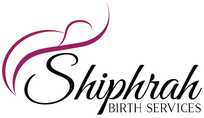Welcome to Shiphrah Birth Services Blog! Please feel free to check out and share the posts on this blog. I love feedback, so if there’s something you want to see, hit the contact me button and let me know.
This week marks National Midwifery Week and, as a midwife who has utilized midwives for my own care, I couldn’t let it pass without writing about midwifery.
Midwives are becoming increasingly popular as women as a whole are starting to call for individualized care, tailored for their specific needs. Midwives, as common as we are becoming, are still somewhat of a mystery to many people. Midwives are sometimes confused with doulas (doulas are not healthcare providers) or considered 'less than' when it comes to providing care. The truth is that midwives are highly-trained and skilled individuals who provide care to women in their childbearing years and beyond.
You can read two different wordings of the Midwifery Model of Care here and here. What you’ll notice in both is a focus on individualized care for each woman, not a cookie cutter approach to pregnancy, labor and birth. Midwives are trained in normal, physiological processes, especially when it comes to pregnancy, labor, birth, and the postpartum period. Midwives are also trained to recognize when things arise that are no longer part of the normal, physiological process and are able to make referrals when advanced care is needed. Midwives strive to provide individualized care, which in turn fosters good communication and trust.
Midwives provide annual exams, family planning, prenatal, labor, birth, and postpartum care. Midwives are appropriate prenatal care providers for low-risk women with low-risk pregnancies.
My own experiences with midwives include the care of Certified Nurse Midwives (CNM’s-primarily in-hospital providers) during my first pregnancy and birth, and the care of Certified Professional Midwives (CPM’s-out of hospital providers) for my next three pregnancies and births. My appointments were never cut short as my midwives always took time to answer my questions, as well as to check in on more than the baby’s heartrate and what I was measuring that week. Midwives care about the whole woman, and take the time to make sure you’re healthy and well emotionally and physically. The support of my midwives during my labors was invaluable, and I so appreciate the time they took to be with me as my body was working to bring my babies in to the world. My midwives always treated me respectfully, and gave full informed consent about any procedures they offered.
Midwives are a wonderful part of our healthcare in the United States and Iowa is fortunate to have midwives in most parts of the state. I highly recommend midwifery care and hope that you find you love midwives as much as I do.
Have you used the services of a midwife? Tell me in the comments what you loved about your care!
This week marks National Midwifery Week and, as a midwife who has utilized midwives for my own care, I couldn’t let it pass without writing about midwifery.
Midwives are becoming increasingly popular as women as a whole are starting to call for individualized care, tailored for their specific needs. Midwives, as common as we are becoming, are still somewhat of a mystery to many people. Midwives are sometimes confused with doulas (doulas are not healthcare providers) or considered 'less than' when it comes to providing care. The truth is that midwives are highly-trained and skilled individuals who provide care to women in their childbearing years and beyond.
You can read two different wordings of the Midwifery Model of Care here and here. What you’ll notice in both is a focus on individualized care for each woman, not a cookie cutter approach to pregnancy, labor and birth. Midwives are trained in normal, physiological processes, especially when it comes to pregnancy, labor, birth, and the postpartum period. Midwives are also trained to recognize when things arise that are no longer part of the normal, physiological process and are able to make referrals when advanced care is needed. Midwives strive to provide individualized care, which in turn fosters good communication and trust.
Midwives provide annual exams, family planning, prenatal, labor, birth, and postpartum care. Midwives are appropriate prenatal care providers for low-risk women with low-risk pregnancies.
My own experiences with midwives include the care of Certified Nurse Midwives (CNM’s-primarily in-hospital providers) during my first pregnancy and birth, and the care of Certified Professional Midwives (CPM’s-out of hospital providers) for my next three pregnancies and births. My appointments were never cut short as my midwives always took time to answer my questions, as well as to check in on more than the baby’s heartrate and what I was measuring that week. Midwives care about the whole woman, and take the time to make sure you’re healthy and well emotionally and physically. The support of my midwives during my labors was invaluable, and I so appreciate the time they took to be with me as my body was working to bring my babies in to the world. My midwives always treated me respectfully, and gave full informed consent about any procedures they offered.
Midwives are a wonderful part of our healthcare in the United States and Iowa is fortunate to have midwives in most parts of the state. I highly recommend midwifery care and hope that you find you love midwives as much as I do.
Have you used the services of a midwife? Tell me in the comments what you loved about your care!


 RSS Feed
RSS Feed